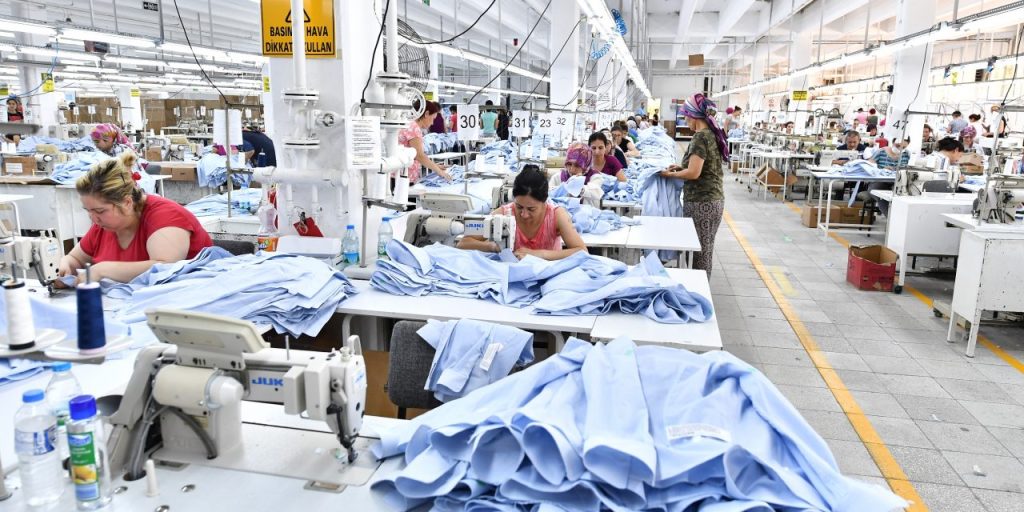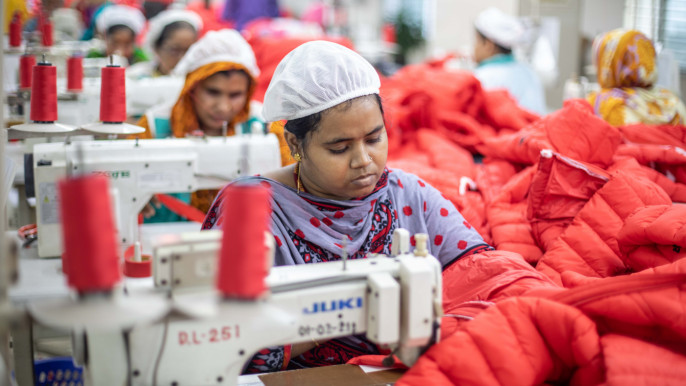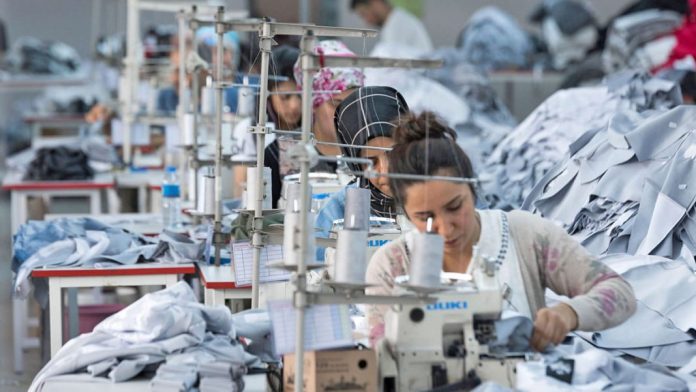The garment industry has rapidly expanded in recent decades due to increasing demand for cheaper and more varied clothing. To keep costs low and production high, firms in developed countries outsource garment production to developing countries. In turn, these developing countries often relocate production within and between countries to find the cheapest labor.
Low Wage
In Bangladesh, about 40 million workers work in the garments industry. They work about 10 to 15 hours in a single day for a little wage, receive only 12,500BDT (US$125) per month.
In Ahmedabad, India, earn between US$0.43 and US$4.32 per day, but most earn under US$2.00.
In Lahore, Pakistan, most earn between US$0.25 and US$5.21, but many earn under US$1.00.
Most homeworkers in the garment and textile industry are paid by the piece (according to how many items they produce), earn very little, and do not receive overtime pay. Most receive no sick leave or paid vacations.
On the other hand in Bangkok among self-employed garment workers, the average daily turnover was 845 baht (approx. US $28) for a seven-hour day.

Health Risk
Garment workers rarely have appropriate protective equipment and may be unaware of necessary safety measures. Workers exposed to harmful chemicals and poor working conditions may suffer from chronic health problems, impacting overall public health. Health risks in the garment industry include repetitive strain injuries, exposure to dust from cloth pieces, and contact with poisonous chemicals in some dyes. Family members are also at risk due to shared living and working spaces. Participants in the IEMS study from both India and Pakistan reported suffering from backaches and eye strain.

Long working time
Recent articles published by local news sites in Bangladesh (Textile Today, Apparel Resources) report that a Ministry of Labour and Employment circular, issued on April 13th 2022, permits garment exporting factories to have their employees work two more additional hours of overtime per day, for a possible legal total of four hours of overtime. The new overtime rule went into effect on April 17th and is set to remain in place for six months. This means that it is now legal for a factory to have its workers work 12 hours a day, 6 days a week, for a total of 72 hours per week. Before this circular was issued, the legal limit was 10 hours a day, for a total 60 hours a week.

Effect on social relations
When work demands a significant amount of your time and energy, it can have several effects on your social relationships with family and friends:
1. Reduced Quality Time: Spending less time with family and friends can weaken emotional bonds. Relationships thrive on shared experiences and regular interaction.
2. Communication Breakdown: Less frequent communication can lead to misunderstandings and feelings of disconnect. Important conversations might be missed, and it becomes harder to stay updated on each other’s lives.
3. Emotional Distance: Over time, you might feel less emotionally connected to your loved ones. This distance can create a sense of isolation for both you and them.
4. Increased Stress and Tension:Balancing a demanding work schedule with personal relationships can increase stress. This tension can spill over into interactions with family and friends, leading to conflicts.
5. Neglected Responsibilities: When work consumes your time, you might inadvertently neglect responsibilities at home, causing frustration and resentment among family members.
6. Imbalance in Support Systems: Friends and family are often primary sources of emotional support. If work limits your availability, you might miss out on this support, and they might feel unsupported in return.
Writer Information

Ruhul Amin Siddiqee
Student, Dept. of Textile Fashion and Design,
Bangladesh University of Textiles (BUTEX).
Campus Team Member, Textile Engineers Society (TES)


